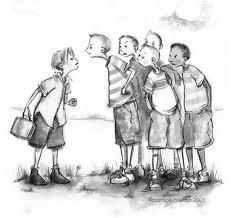Solutions & resources for adults, teens, couples, and families to assist with managing anger, stress, relationship issues, family & parenting problems.
Showing posts with label Bully. Show all posts
Showing posts with label Bully. Show all posts
Sunday, August 17, 2014
Domestic Violence is Aggravated Assault: Only You Can Stop The Cycle of Violence!
DOMESTIC VIOLENCE IS AGGRAVATED ASSAULT!
Don't Live in Fear of Domestic Violence ! If you, or someone you love, is living with domestic violence help is available 24 hours a day. Take the first step and make a phone call; you may be saving a life. For further information, please call the following numbers 24 hours a day, 7 days a week, 365 days a year.
Domestic Violence Hotline
800-978-3600
National Domestic Violence Hotline
800-799-SAFE (7233)
TDD 800-787-3224
Domestic violence is more than just a "family problem"; it is a crime. The Los Angeles Police Department (LAPD) recognizes that domestic violence is a major problem in Los Angeles County and throughout the United States. Each year, more than two million women are victims of domestic violence, and one million children are physically abused.
In California, it is a crime for any person to threaten, beat, sexually assault or otherwise harm another person, even if they are married. Battering is not exclusively a crime against women, but they are the majority affected.
One of every two families in the United States is involved in domestic violence at some time. Domestic violence is a repetitive pattern in people's lives. Victims or witnesses of domestic violence in childhood are mostly likely to repeat such acts as adults.
The current incidence of domestic violence cannot be tolerated. Too many women are beaten. Too many children are abused. Too many homes are battlegrounds. There is a way out! Victims do not need to submit and lead a life of tension between calm and storm.
If you are a victim of domestic violence, now is the time to start thinking about protecting yourself. The fact that you are seeking assistance is a very good sign. It means you are seriously considering your situation. Calling the police, telling a friend, or contacting a shelter is the first step. Please don't wait until it is too late. Many studies show that an uninterrupted cycle of violence only worsens over time. Hotlines and shelters are there to be used and counseling is available. It's as close as a phone call and it's free. Let us help you.
Stop the violence and stay safe!
If you would like further information about domestic violence or other mental health services, please call 1-888-992-6479. Your consultation is free and confidential.
Posted by
North Valley Anger Management Consultants:Anger Management For Modern Life
at
12:39 PM
No comments:


Labels:
abuse,
aggressive,
anger management,
Bully,
domestic abuse,
Domestic Violence,
family conflict,
Family Violence,
relationships,
stress
Sunday, August 4, 2013
Dumping My Bucket of Emotions Without An Angry Outburst!
For many people anger and
disruptive behavior are the result of internalized tension and resentment. In
short, anger represents mental and emotional fill points or bucket of emotion,
that have hit there limit and literally burst. So what is an emotional “fill
point” and how does it affect us? An emotional “fill point” is an imaginary
line used to represent how much stress and anger a person can accumulate before
these negative emotions start to “spill” out in an angry outburst.
Some people have a low fill
line, while others have a high one. Children, on the other hand, tend to have much lower fill lines than
adults, and as such care must be taken when interacting and setting and example
for them. When a child reaches their fill line, they tend to let all their
negative emotions spill out onto others in un- healthy ways. Disruptive
behavior, acting out, anger, irritability, and bullying are the most common
unhealthy ways that a child uses to try and relieve stress by playing out
emotions that they may not be able to verbally express. This is not only
devastating for the child, but also for the unintended victim of the angry lashing
out, be it family, a friend, classmates etc. The most important thing to remember
is that a child, unlike and adult, does not know their fill line; and as such, is unable to actively choose to reduce their
stress and negative emotions before they spill over onto others.
When a child’s
emotional bucket is full, it is up to the caregivers in their lives to help
them learn and begin to use healthy appropriate alternatives to angry out
bursts or they disruptive behaviors. Some effective tools to help children cope
with tension and stress dump are engaging activities including sports, Boys
& Girls Club, summer camp, etc, redirection such as color grounding (have
them choose a color in a room, then prompt them to point out how many places
they see the color), creating a coping box filled with manipulatives, guided
activities, music, slow deep breathing, taking space, etc. Adults, on the other
hand, are able to dump their emotional buckets and make healthy choices to
reduce their tension and anger without prompting; however, the same principles apply.
Appropriate ways for adults to reduce their emotional fill lines include going
to the gym, enrolling in Yoga, slow deep breathing, talking with a friend,
guided imagery, etc.
Whether a child or an adult,
healthy coping may take some practice, but recognizing and appropriately
relieving the anger, stress, and tension built up in an emotional bucket will
ultimately lead to a happier, calmer life.
For more information about healthy alternatives to managing anger, please visit www.nvamc.com, or call 1-888-992-6479 for a free consultation.
Posted by
North Valley Anger Management Consultants:Anger Management For Modern Life
at
12:39 PM
No comments:


Labels:
adult,
Anger,
angry,
angry outburst,
Bully,
child's,
children,
color grounding,
coping box,
coping skills,
disruptive behavior,
emotional bucket,
emotional intelligence,
fill line,
fill point,
stress,
taking space
Sunday, August 19, 2012
Why Hater's Hate: Moving Past the Anger
Hate. For most people this word conjures up more images and memories than perhaps any other. The bully who made you miserable as a child; a friend you once trusted; an ex lover, a parent, a sibling…maybe even yourself. Hate comes from anger, and anger from the instinct to protect ourselves from pain. In short, anger and hate originate from a primitive defense rooted in the brains need to automatically protect itself from perceived threats. When it comes down to it, feeling angry and hateful is easier and safer than feeling sadness, betrayal, disappointment, fear, grief or loss.
 Fixing this is simple, but it is not easy. It takes a willingness to recognize and change negative thoughts and behavior patterns, and the ability to identify and work through the experiences that caused the hate and anger so you can let it go. Remember that hate is easy, but forgiveness is hard. It is up to you to decide to forgive and move on to being a healthier, happier you.
Fixing this is simple, but it is not easy. It takes a willingness to recognize and change negative thoughts and behavior patterns, and the ability to identify and work through the experiences that caused the hate and anger so you can let it go. Remember that hate is easy, but forgiveness is hard. It is up to you to decide to forgive and move on to being a healthier, happier you.
When you are ready to begin to the healing, we can help. North Valley Anger Management Consultants offers evening and weekend classes to help you over come the anger and hate. For more information, or a free consultation, please visit our website at www.nvamc.com or call us at 1-888-992-6479 today. Anger hurts, we can help stop the hurt and begin the healing.
Posted by
North Valley Anger Management Consultants:Anger Management For Modern Life
at
9:22 PM
No comments:


Labels:
Anger,
anger management,
Bully,
fear,
forgiveness,
grief,
Hate,
health,
peace,
U2
Sunday, February 26, 2012
How To Spot a Bully In Your Child's Life
 Would you know if your child was being bullied? Often bullying goes unreported and undetected, yet the damage is still done and can have life altering effects. In 2009, Finkelhor, Turner, Ormrod,&Hamby conducted a national study of
Would you know if your child was being bullied? Often bullying goes unreported and undetected, yet the damage is still done and can have life altering effects. In 2009, Finkelhor, Turner, Ormrod,&Hamby conducted a national study of
Comes home with torn, damaged, or missing pieces of clothing, books, or other belongs
Has unexplained cuts, bruises, scratches
Has few, if any friends, with whom they spend time
Seems afraid of going to school, walking to and from school, riding the bus, or taking part in organized activities with peers
Takes a long, illogical, route to school
Has lost interest in, or suddenly begins to do poorly at school
Appears sad, moody, teary, or depressed when they come home from school
Complains of frequent headaches, stomachaches, or other physical symptoms
Has trouble sleeping or has frequent bad dreams
Demonstrates a loss of appetite
Appears anxious and suffers from low self esteem
Learning how to recognize the symptoms may save a life. Know the signs and stop bullying today!
For more information please visit www.cde.ca.gov/ls/ss/se/bullyres.asp
For more information please visit www.cde.ca.gov/ls/ss/se/bullyres.asp
Posted by
North Valley Anger Management Consultants:Anger Management For Modern Life
at
7:08 PM
No comments:


Labels:
abuse,
Anger,
Bullies,
Bully,
bully awareness,
Bullying,
bullys,
depression,
emotional intelligence,
fear,
frustration,
interpersonal relations,
parenting,
signs,
teachers,
youth
Subscribe to:
Posts (Atom)


